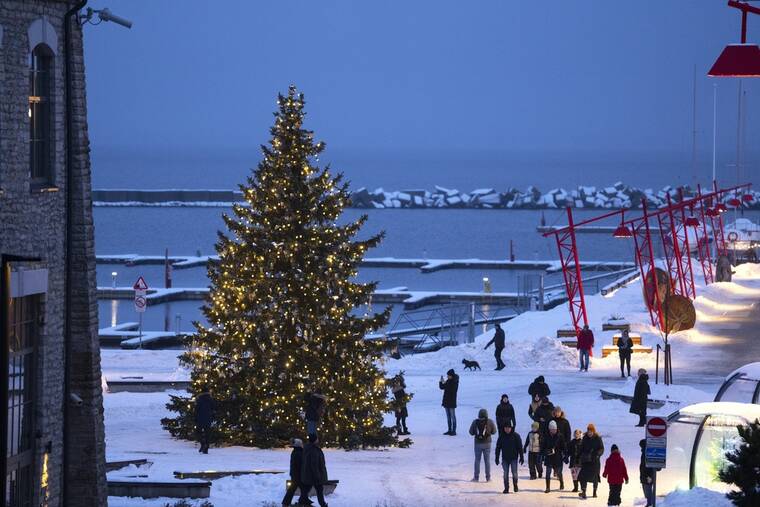TALLINN, Estonia — Christmas trees started appearing in Central Europe and the Baltic States, including Estonia, as early as the Middle Ages and have now become traditional across much of the world.
TALLINN, Estonia — Christmas trees started appearing in Central Europe and the Baltic States, including Estonia, as early as the Middle Ages and have now become traditional across much of the world.
Dec. 22 is the shortest day of the year and in Estonia, as in many parts of the world, trees covered with lights brighten up homes and town squares during the Winter Solstice and Christmas festivities afterward.
In order to grow a 2.5-meter (8-foot) Christmas tree, Arvo Palumäe, co-owner of a Christmas tree farm he started 14 years ago, waits 8 years before carefully selecting it, shaping it during the summer months and cutting it for delivery. But while some Estonians buy trees directly from him, they are also able to cut their own.
The State Forest Management Centre provides Estonians with a map of forests showing locations of trees they can cut down themselves. They advise people to avoid trees near power lines and encourage Estonians to plant spruces in the forests to make sure there are Christmas trees for generations to come.
Estonia largely exports trees to the European Union. It also exported Christmas trees to Russia before the country’s invasion of Ukraine stopped trade.
After the holidays, Christmas trees in Estonia are turned into wood shavings or even used to flavor beverages.

Subscribe today for unlimited access.
Already a subscriber?
Login
Not ready to subscribe?
Register for limited access.
If you have a print subscription but require digital access,
activate your account.






